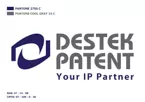A longed-for new industrial property law intended to replace the present decree-laws for the protection of patents, trademarks, designs, geographical indications and integrated circuit designs has come into force in Turkey on 10th January 2017.
The new industrial property law (i.e. Law No. 6769 of 10th January 2017) introduces a single comprehensive law instead of the present five different decree-laws currently regulating Turkey's IP legislation on patents/utility models, industrial designs, trademarks, geographical indications and integrated circuit designs.
Although the new industrial property law's provisions mostly originate from the earlier decree-laws, they have now been lifted to a much higher level of compliance with EPC, EU Community Design regulations, TLT, TRIPS-2015 amendments as well as the EU Trademark Directive and Regulation and the Madrid Protocol examination procedures. In total, the new law comprises 193 articles and 6 provisional articles, which are divided into five main chapters, so called "books".
This news article aims to provide you with an overview on some notable changes in the books related to trademark, patent and design legislation:
Trademark Changes (Book 1, Articles 4-32)
- Scope of unconventional marks eligible for trademark protection broadened to encompass sounds, packaging and product shape by eliminating the former graphical representation requirement.
- Bad-faith listed among absolute grounds for refusal.
- Use of co-existence agreements and letters of consent to overcome ex officio refusals associated to trademark applications for identical or confusingly similar to earlier registered or applied ones, protecting the same or similar goods or services allowed; such documents should be notarized.
- An opponent should prove genuine use of a trademark which forms the basis of an opposition if the non-use grace period (5 years) has expired and if requested by the applicant; such requests are also valid for a plaintiff's defense in infringement proceedings. This change aims to: (1) encourage the use of registered trademarks in the Turkish market, (2) prevent applicants from filing and registering their marks for goods and services that are not intended to be used and (3) stop misusing the opposition mechanism.
- Publication period of trademarks applications and response period to ex officio refusals shortened to 2 months (from 3 months).
- Administrative procedure for the cancellation of registered trademarks at the TPTO will, in parallel with the EU regulation, be effected seven years later.
- New examination rule on trademark applications designating Turkey under the Madrid Protocol; preventing Turkey extensions from being rejected based on the existence of a national trademark which was filed after the international trademark's application or priority date.
- Partial renewal for some of the registered goods or services available, i.e., renewing trademarks only for requested classes (of all registered classes).
Patent & Utility Model Changes (Book 4, Articles 82-145)
- Post-grant opposition procedure introduced: third parties allowed to file oppositions within 6 months after a patent has been granted before the Turkish Patent Office.
- Professors' privilege removed: right to file a patent for inventions made by scientific staff while at work deemed to belong to universities; thereby entitling scientific staff to claim for at least one third of the income deriving from such patent commercializations.
- Non-examined patent system abolished: no more short-term patent protection of 7 years without substantive examination upon having the search report.
- Utility model applications: novelty search now compulsory and applicants can file amendments during the registration proceedings; no substantial examination.
- Divisional applications: can now be filed anytime upon an applicants' request before grant; no prerequisite to have a unity of invention objection during examination.
- New contents regarding to biotechnological inventions which are compatible with EU Directive # 98/44.
- Clearer provisions to protect second medical use patents, also referred to as "indication patents" (as opposed to "molecule patents").
- Obligation to submit evidence of use to the TPTO removed while "use requirement" remained in force upon a risk of compulsory licensing by third parties.
- The Turkish Patent Institute recently approved as an international S/E Authority by WIPO which is expected to gradually facilitate the workflow regarding to foreign search and examining authorities, i.e., Austria, Denmark, Sweden, Russia, EPO (search only).
Design Changes (Book 3, Articles 55-81)
- Industrial design renamed to "design" so as to broaden the scope of protection.
- Novelty search to be carried out for each design application at the TPTO.
- Ex officio rejections for designs contrary to the public order or general morality.
- No formal requirement for design description and scope of protection will not be effected by such description if it is filed.
- Post-grant opposition period shortened to 3 months (from 6 months).
- No fee for opposition proceedings against a published design application at the TPTO.
- Introduction of unregistered design protection of three years from the date on which it has been first made available to the public within Turkish territory.
- Only visible parts of a complex product shall be protected if they meet novelty and individual character criteria (in accordance with EU regulations).
- Some exceptions to component parts of a complex product eligible for three years' protection for repair purposes by the Ministry of Science, Industry and Technology.
- Professors' privilege removed: right to register a design crafted by scientific staff while at work deemed to belong to universities; thereby entitling scientific staff to claim for at least half of the income deriving from such design commercializations.
Some important remarks
- Any applications filed before the publication of the new law will enjoy the earlier regulations in force.
- Trademark litigation allows for civil and/or criminal proceedings whereas civil proceedings is available for patent and design litigations.
- Registered IP rights will not constitute a legitimate defense against any infringement claim brought by the owner of the earlier IP right.
- The new intellectual property law introduces the "international exhaustion of rights principle", thereby replacing the earlier "national exhaustion principle".
- No change in grace period of 12 months for patents, utility models and designs. An application at the TPTO can still be filed safely within one year from the first disclosure date.
- Re-institution of lost rights owed to missing due dates being partly facilitated in exceptional cases.
- Renaming of the Turkish Patent Institute (Turkish: Türk Patent Enstitüsü) to "Turkish Patent & Trademark Office (TPTO)" (Turkish: Türk Patent ve Marka Kurumu).
- TPTO staffed with 150 new employees.
- Introduction of disciplinary provisions and commission for patent and trademark attorneys.
The content of this article is intended to provide a general guide to the subject matter. Specialist advice should be sought about your specific circumstances.

